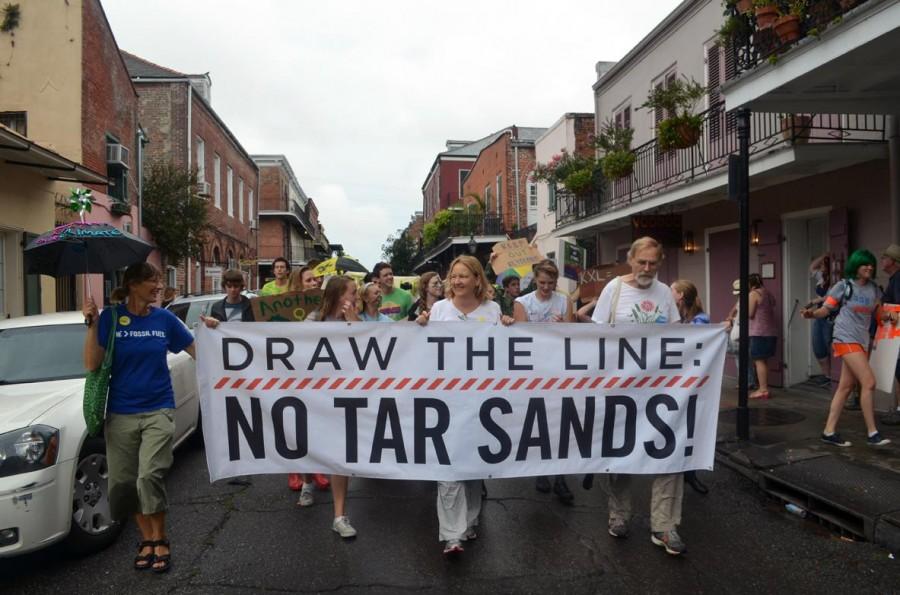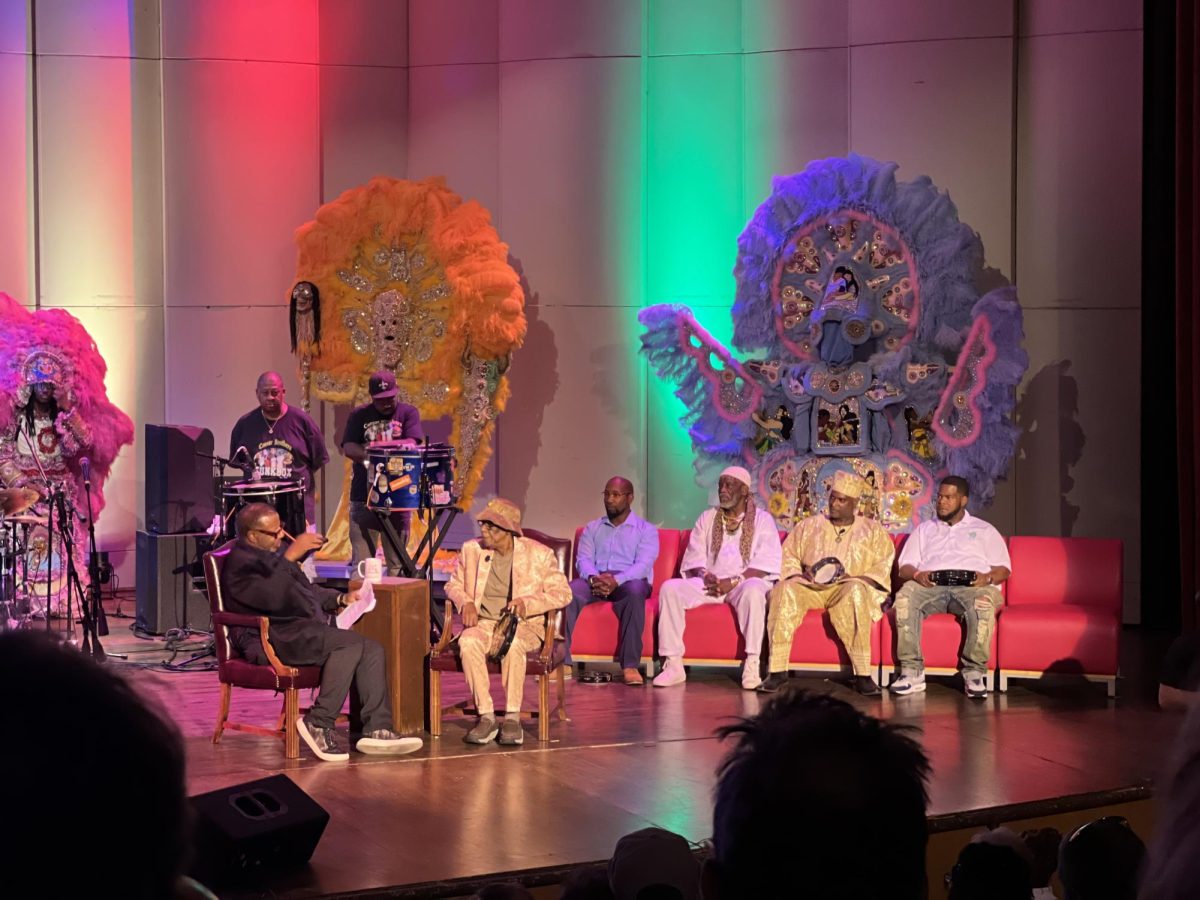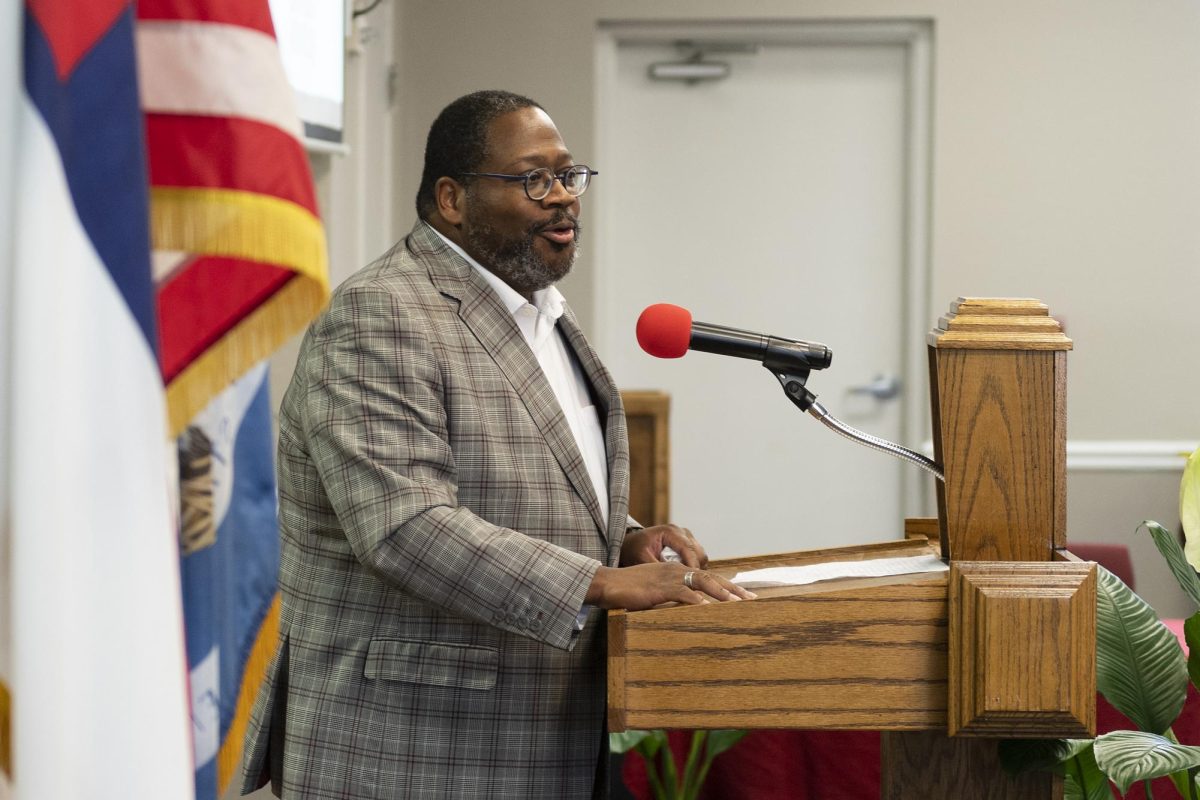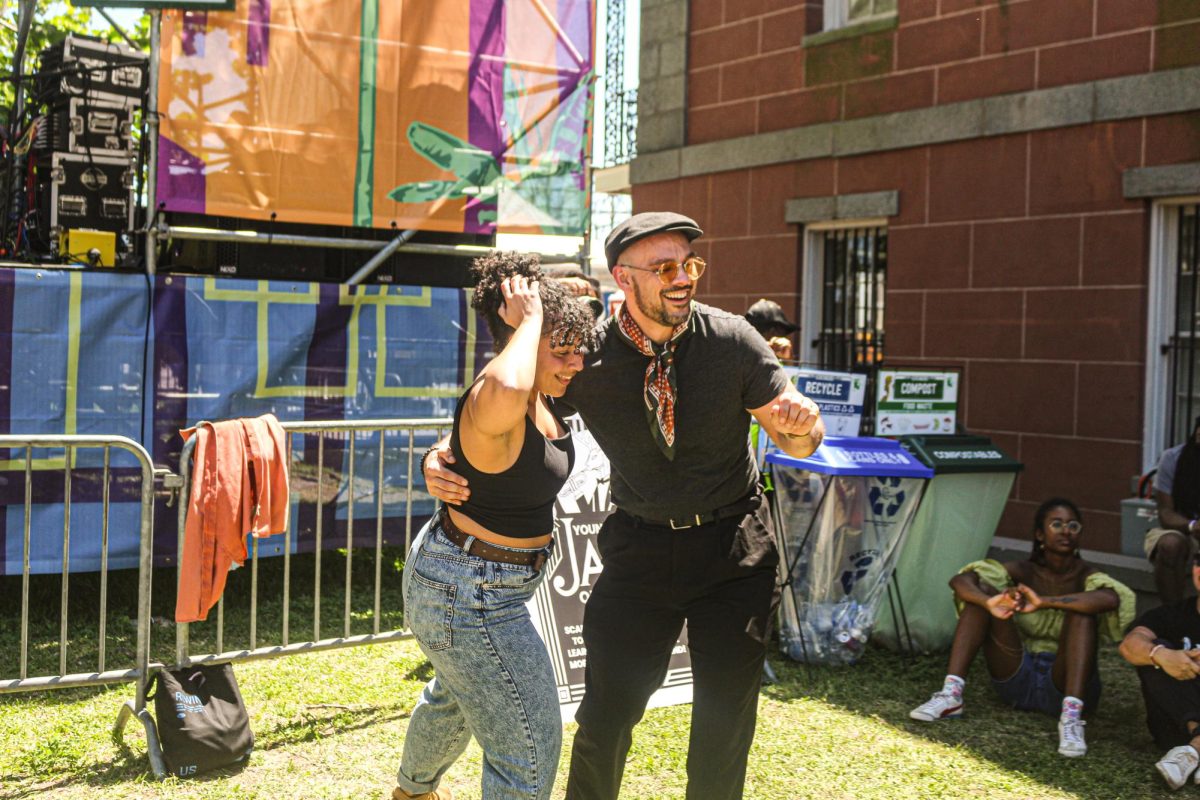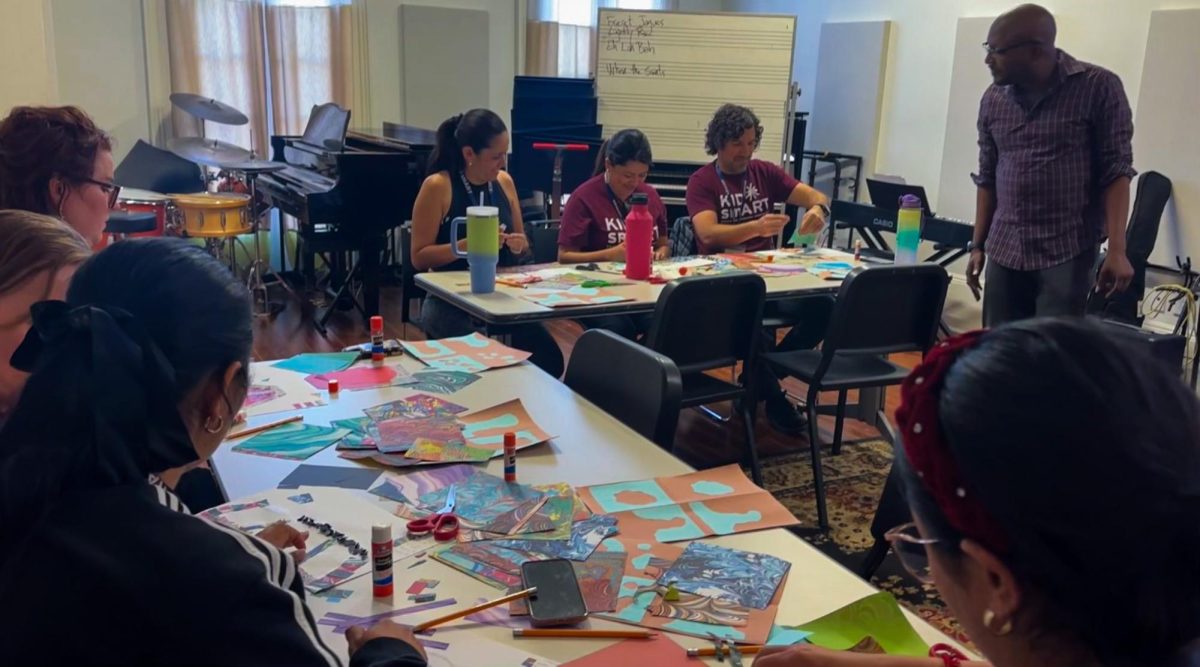Loyola University and Tulane University students partnered with environmental groups to participate in a protest in opposition of the Keystone XL Pipeline on Saturday, Sept. 21, at Woldenberg Riverfront Park.
The Keystone XL Pipeline is an existing pipeline system that transports oil from Alberta, Canada passing through Missouri, Nebraska, Oklahoma, Kansas and Illinois, but its proposed expansion into oil refineries along the U.S. Gulf Coast has been strongly opposed by environmentalists.
350 NOLA, the New Orleans chapter of the international climate change movement, partnered with Tulane Green Club, Louisiana Bucket Brigade, Gulf Restoration Network and other local organizations in the second line protest.
The Lagniappe Brass Band led the protest group in a procession into the French Quarter and Congo Square. The event was followed by a series of speeches at the North Rampart Community Center.
“Draw the Line” was the national day of protest staged across the U.S. to urge President Obama to reject the pipeline expansion as one of his climate change actions.
Supporters of the pipeline expansion believe it will create a new source of jobs and decrease the country’s dependency on international oil.
Claire Beauchamp, outreach coordinator of the Tulane Green Club and environmental science sophomore at Tulane University, began organizing this protest with local organizations in mid-August. “Draw the Line” was the first protest that she had been involved with planning.
“This second line is to remind New Orleanians and get them thinking about climate change and environmentalism in this city because we are at the front lines,” Beauchamp said.
For many in attendance, this was their first time protesting.
Yvonne Cappel-Vickery, A’12 and intern for the Alliance for Affordable Energy, is a member of 350 NOLA.
“Our protest is not just a political protest. We wanted to incorporate part of the New Orleans and Louisiana culture,” Cappel-Vickery said.
Scott Eutis, coastal wetland specialist at the Gulf Restoration Network, spoke to the protest group on the importance of wetlands and climate change in relation to the pipeline controversy.
According to Friends of the Earth International, a grassroots environmental organization, the proposed pipeline would produce 830,000 barrels of tar sands oil daily.Tar sands are one of the dirtiest fuels on earth, and they pose a threat to the ecosystems and water supply, since the pipeline would cross major rivers.
Sept. 17 will mark the fifth year anniversary of the submission of the pipeline’s expansion application to the state department.
According to the Associated Press, President Barack Obama has not given his approval of the expansion yet, and will not until he is sure that the project will not increase greenhouse gas emissions.
“This pipeline is so important because for the first time the president has stood up and said that the climate matters. We’re hoping that this decision will turn the tide and pull these companies to their full account,” Eutis said during his speech.
Anne Rolfes, executive director at the Louisiana Budget Brigade, shared with the audience that in Louisiana, oil companies suffer accidents year after year.
“Why in the world would you add on another pipeline when we can’t even take care of the pipelines we already have? This is something that is not often talked about in the Keystone conversation,” Rolfes said during her speech.
On this day of action, Rolfes made a bold move. In the middle of her speech, she called Sen. Mary Landrieu, D-La., on speaker and left a voicemail. Everyone in the room shouted, “Draw the Line on the pipeline.”
Aaron Nazarian, international business junior, interned for the Louisiana Bucket Brigade. Two years ago he protested against earlier stages of the Keystone XL Pipeline.
“It was cool to protest for something that I believe in. I knew a few of the people organizing it, so it was great to support them,” Nazarian said.
Tiffany Kudiwu can be reached at [email protected]


